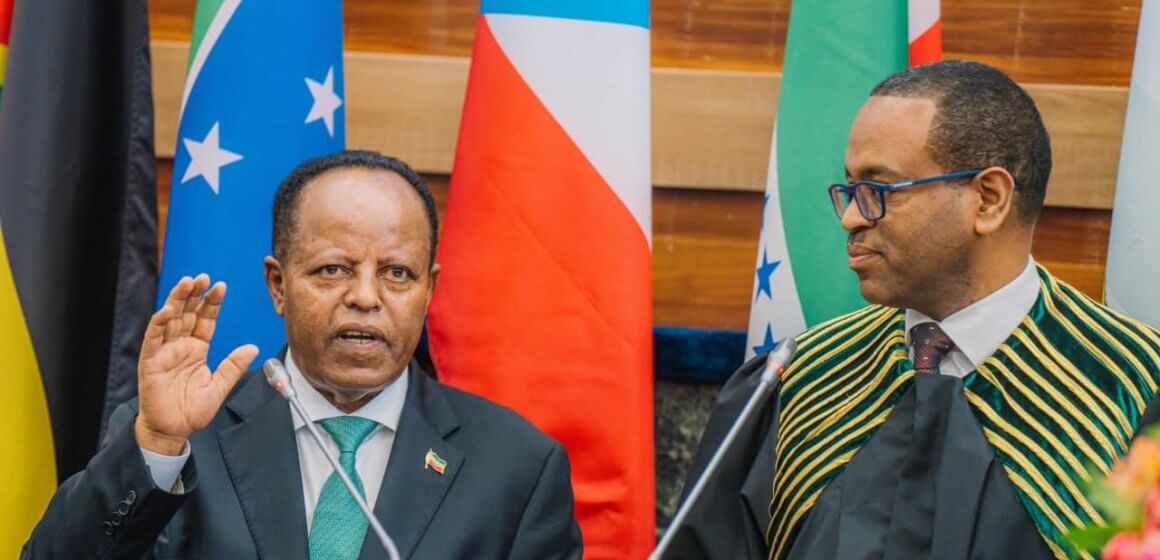|
LISTEN TO THIS THE AFRICANA VOICE ARTICLE NOW
Getting your Trinity Audio player ready...
|
Ethiopia Monday underwent a notable political transition as its parliament appointed Taye Astike Selassie as the new president, succeeding Sahle-Work Zewde, the nation’s first female head of state.
Sworn in before members of parliament, Selassie, 68, brings extensive diplomatic experience to the largely ceremonial role, having served at the United Nations and as Ethiopia’s ambassador to Egypt. His close alignment with Prime Minister Abiy Ahmed suggests a consolidation of the current political direction, as real power in Ethiopia resides with the prime minister.
Sahle-Work Zewde’s presidency, which began in 2018, was initially hailed as a groundbreaking moment for gender equality in Ethiopian politics. Supported by Prime Minister Abiy at the time, her appointment was seen as a progressive step forward for the country. However, reports indicate that her relationship with the prime minister had deteriorated over the years. Sources close to the 74-year-old former president revealed that she had been increasingly unhappy in her role and was eagerly anticipating the end of her term, which was due later this month.
Over the preceding weekend, Sahle-Work posted a cryptic message on the social media platform X (formerly known as Twitter), hinting at her dissatisfaction stemming from a prolonged period of enforced silence. “Staying silent for the past year has been deeply troubling,” she implied, without providing further details. This message fueled speculation about underlying tensions within the Ethiopian political sphere.
During her tenure, Sahle-Work made multiple appeals for peace amid the nation’s escalating internal conflicts. Ethiopia has been grappling with severe unrest, particularly in the Tigray region, where a two-year civil war resulted in significant humanitarian crises, including widespread gender-based violence. Critics argued that the former president did not speak out sufficiently against these atrocities. Additionally, ongoing conflicts in the Oromia and Amhara regions have led to hundreds of deaths and accusations of crimes against humanity committed by federal forces. It is believed that Sahle-Work was deeply concerned about these issues but felt constrained in her ability to address them publicly.
The Amhara region, in particular, has seen intense clashes between federal forces and local militias. The unrest has destabilized the area and drawn international attention to Ethiopia’s internal policies and human rights record. Observers suggest that the government’s handling of these conflicts has contributed to internal political strains, possibly affecting relationships at the highest levels of leadership.
Taye Astike Selassie’s ascension to the presidency is viewed by some analysts as a move to strengthen Prime Minister Abiy’s political agenda. Selassie’s diplomatic background and close ties to the prime minister may facilitate a more unified government approach to both domestic and international challenges. His appointment comes at a critical time as Ethiopia seeks to navigate complex regional dynamics and internal pressures.
With Sahle-Work’s departure, Tanzania’s President Samia Suluhu Hassan becomes Africa’s only female head of state.











LEAVE A COMMENT
You must be logged in to post a comment.